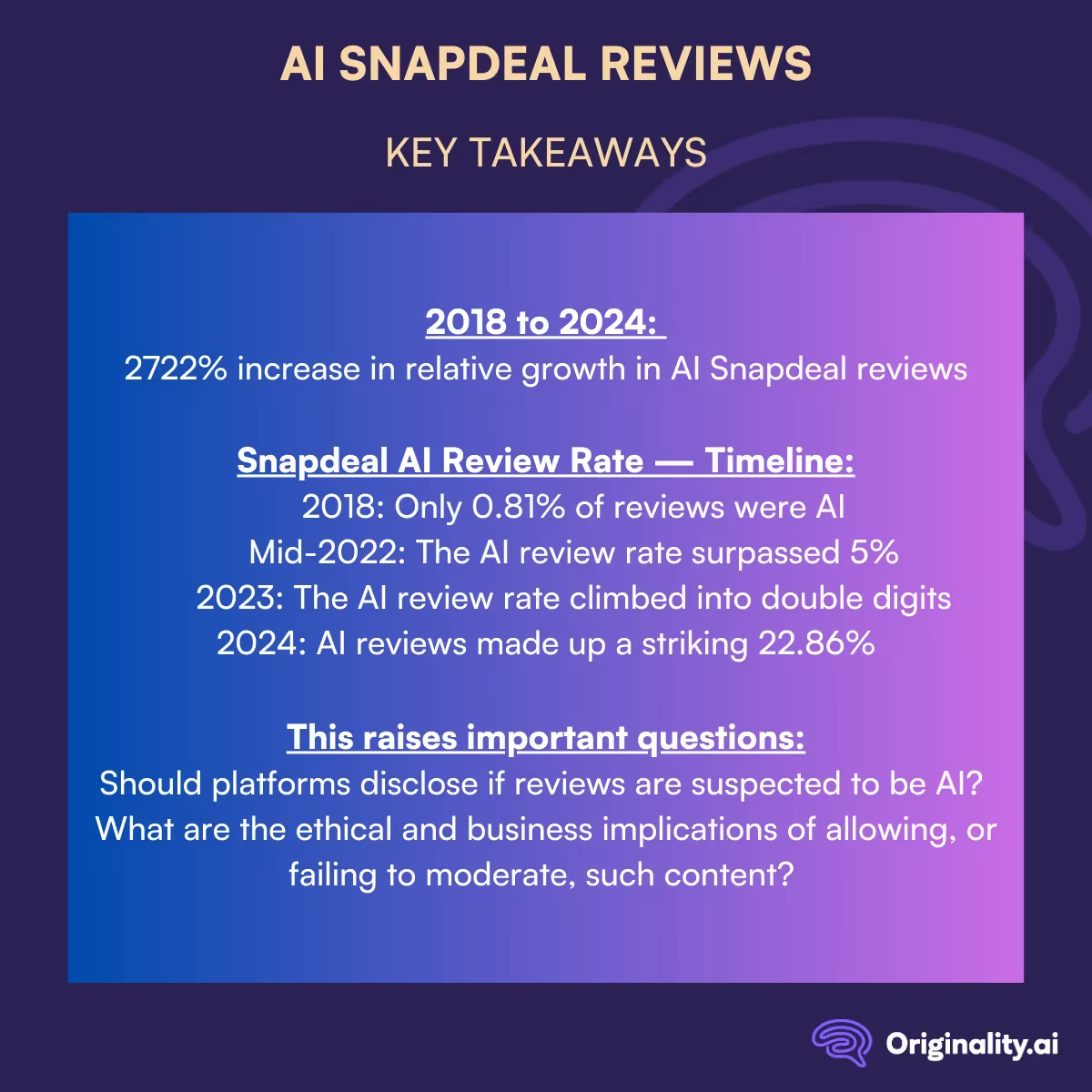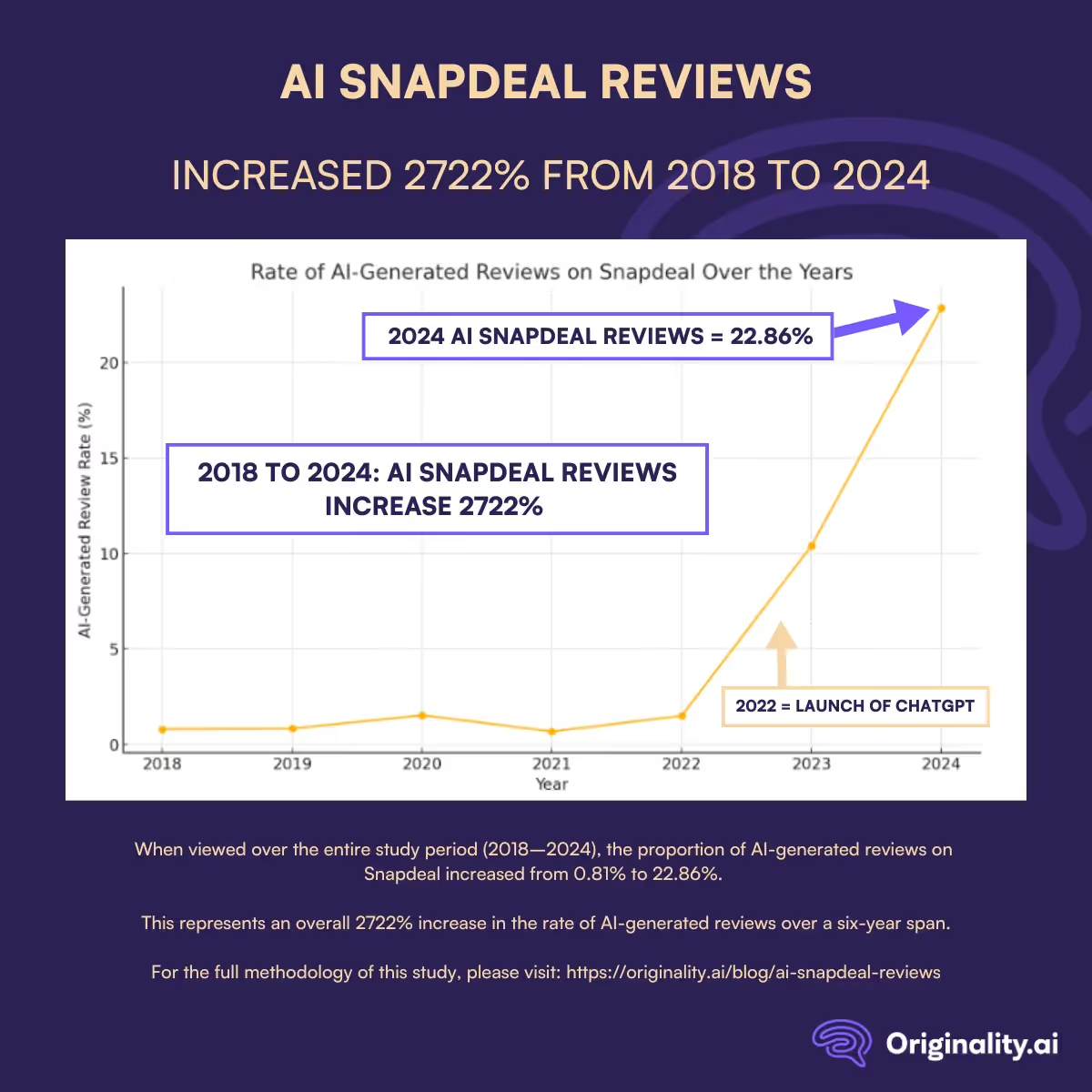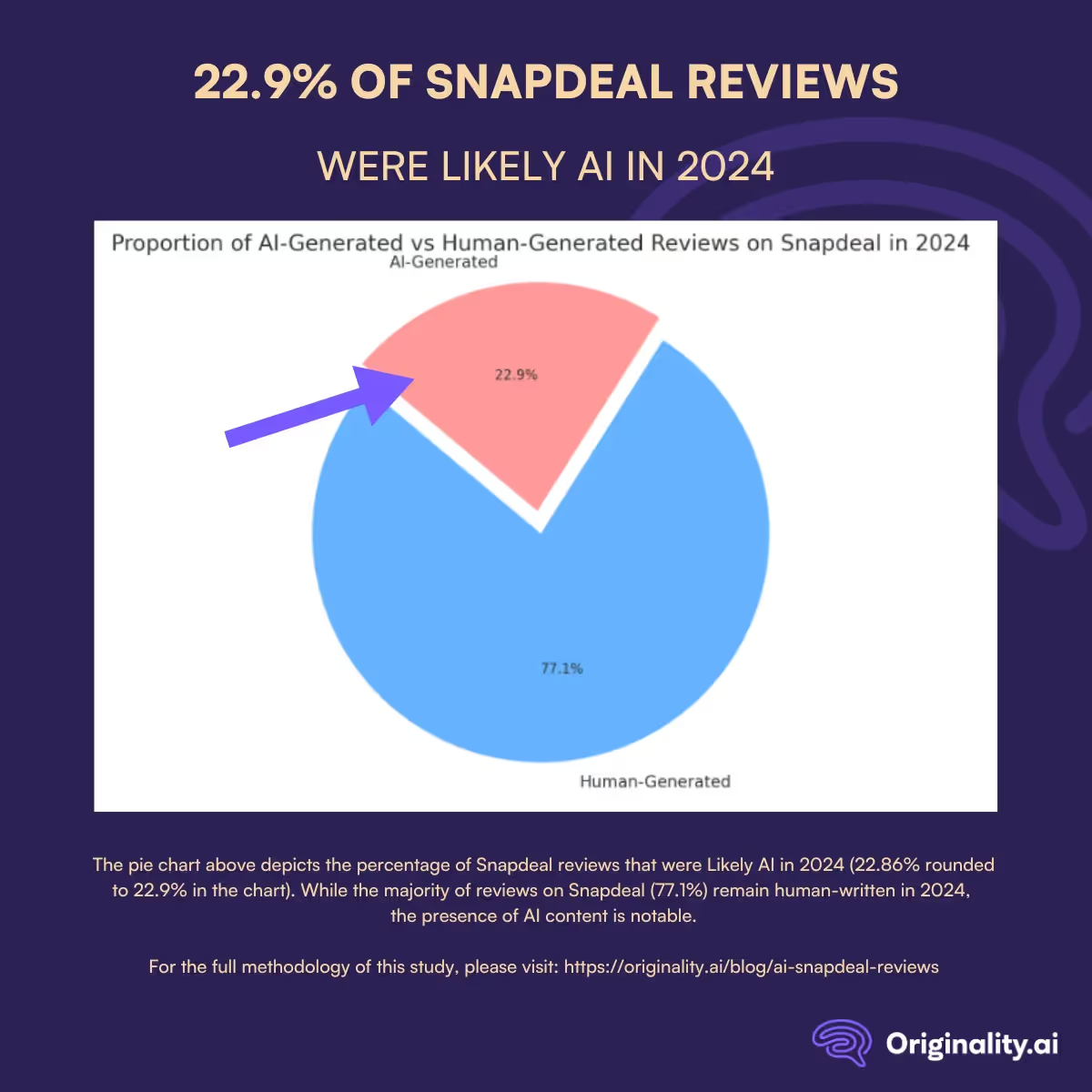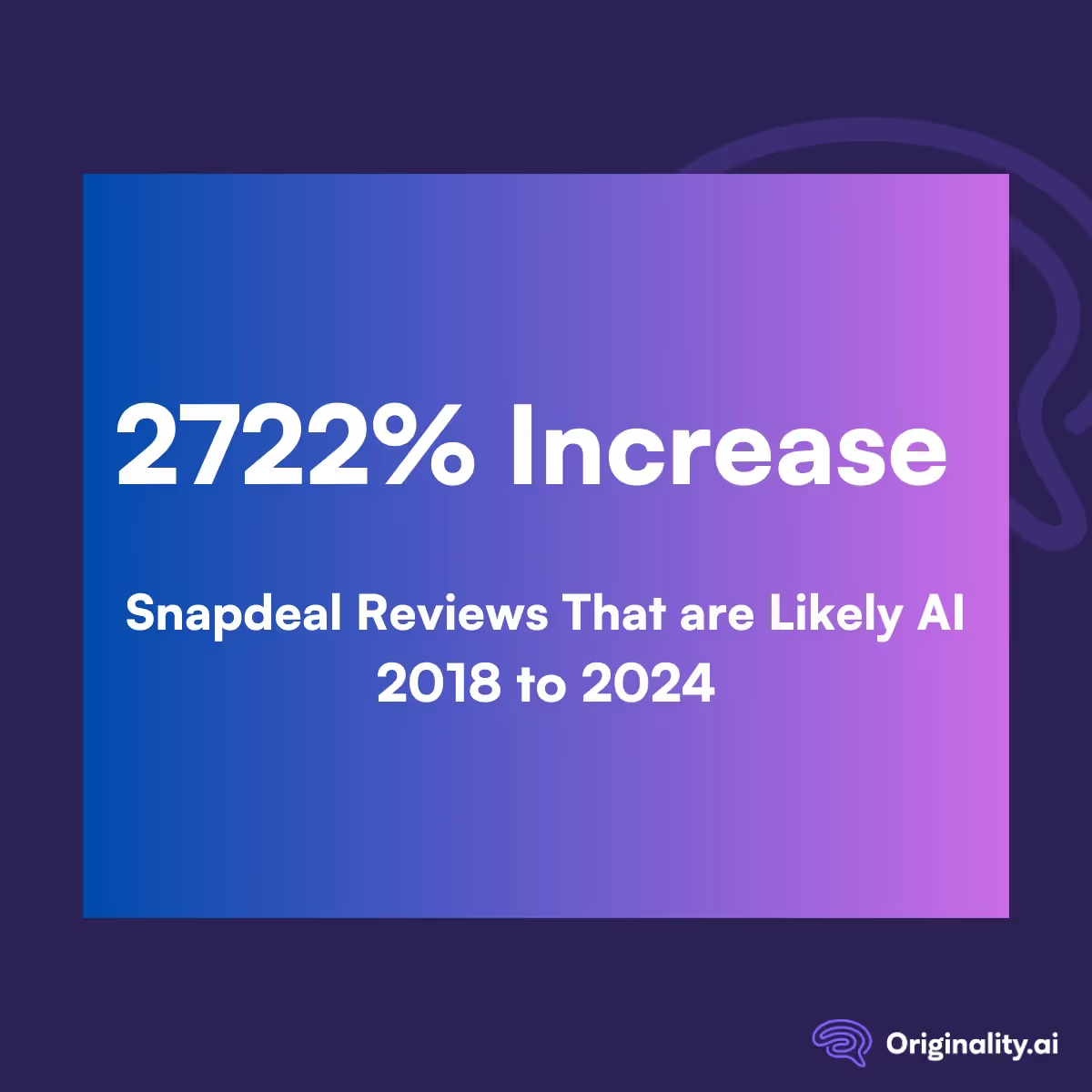Online product reviews have become a cornerstone of consumer decision-making in the digital economy.
As platforms expand their reach and product catalogues, reviews offer essential cues to buyers, guiding perceptions of quality, trustworthiness, and value.
However, with the rise of generative AI tools capable of producing persuasive text, the authenticity of these reviews is now under greater scrutiny.
This study investigates the rate and potential implications of AI reviews on Snapdeal.
Snapdeal is one of India’s largest and most widely used e-commerce platforms. According to Crunchbase, Snapdeal was founded in 2005 and has received $1.8 billion in funding. Further, the Google Play Store notes that the Snapdeal app has had 100 million+ downloads.
Known for its budget-friendly offerings and broad reach, Snapdeal relies heavily on its review ecosystem to support buyer confidence in an increasingly competitive online marketplace. In light of this, this study aimed to examine the prevalence of AI reviews on Snapdeal from 2018 to 2024.
Through this analysis, we hope to provide insights into how AI reviews are shaping the Snapdeal e-commerce experience to:


The analysis of Snapdeal review data from 2018 to 2024 reveals a significant rise in the prevalence of AI-generated reviews.
In 2018, only 0.81% of reviews were identified as AI-generated. This relatively low starting point suggests that synthetic content was not yet a substantial part of the platform’s ecosystem.
However, over the following years, the data shows a consistent upward trajectory in AI-generated content.
By mid-2022, the AI-generated review rate had already surpassed 5%, indicating early signs of adoption of generative AI tools into the review space.
By 2023, the rate had climbed into the double digits, and by 2024, it reached a striking 22.86%.
This change from 0.81% in 2018 to 22.86% in 2024 represents a 2722.22% increase in the rate of AI-generated reviews over a six-year span.
The growth depicted in the graph was likely fueled by advancements in large language models (such as the launch of ChatGPT in 2022) and the increasing accessibility of generative AI applications.

Such a dramatic increase raises concerns about the authenticity of user-generated content. It indicates that AI-generated reviews are no longer marginal — they are becoming a significant presence within Snapdeal’s content ecosystem.
These findings highlight an urgent need for content verification strategies and AI detection systems to ensure transparency and trustworthiness on e-commerce platforms.
Without intervention, the unchecked growth of synthetic reviews could skew product ratings and undermine the decision-making process for consumers.

The 2722% increase in AI-generated review rates over six years is particularly striking.
This growth is not merely statistical; it represents a fundamental change in the composition of user feedback, with nearly one in four reviews on Snapdeal in 2024 potentially written by AI.
This raises a number of concerns about:
Further, a surge in synthetic content has implications for platform governance, transparency, and consumer protection.
While generative AI technology offers potential efficiencies, such as assisting users, it also opens the door to the potential for large-scale content manipulation, whether for competitive advantage or by coordinated review farms.
This surge in AI review content prompts deeper questions:
These are particularly pressing challenges for e-commerce platforms operating in competitive and rapidly digitizing markets.
Finally, as platforms navigate an evolving landscape where synthetic content can easily blend in with genuine user feedback, addressing these questions and maintaining transparency is becoming increasingly important, especially considering that studies have found humans struggle to identify AI text.
This study demonstrates that AI-generated reviews have become a growing part of Snapdeal’s review ecosystem, rising from a low 0.81% in 2018 to a notable 22.86% by 2024.
Such a sharp increase signals the need for strategic intervention to preserve the credibility and usefulness of online reviews.
To respond effectively, Snapdeal and similar platforms should:
As generative AI continues to evolve, platforms must act proactively to ensure that technological advancements do not come at the expense of authenticity, fairness, and consumer confidence.
Do you have concerns over whether a post or review you’re reading might be AI-generated? Use the Originality.ai AI detector to find out.
Read more about the impact of AI on online platforms:
This study uses a data-driven approach to analyze AI-generated reviews on Snapdeal from 2018 to 2024.
The analysis highlights year-over-year trends and the increase in synthetic content, particularly from 2018 to 2024.
This method offers a replicable framework for assessing review authenticity across platforms.

MoltBook may be making waves in the media… but these viral agent posts are highly concerning. Originality.ai’s study with our proprietary fact-checking software found that Moltbook produces 3 X more harmful factual errors than Reddit.